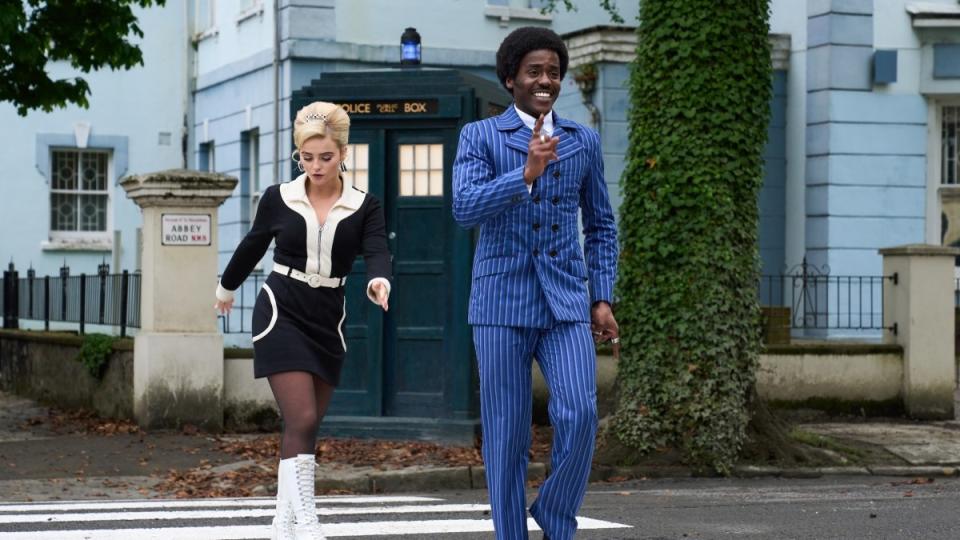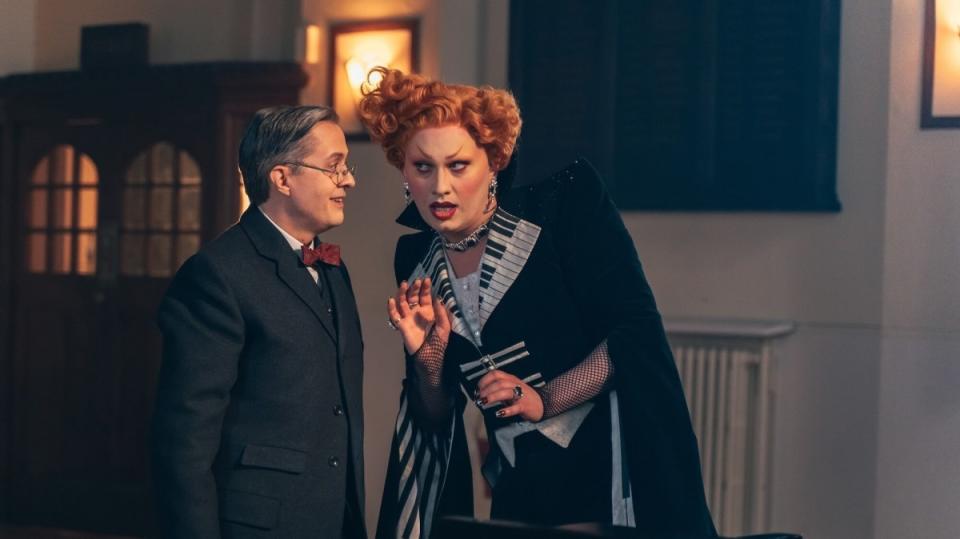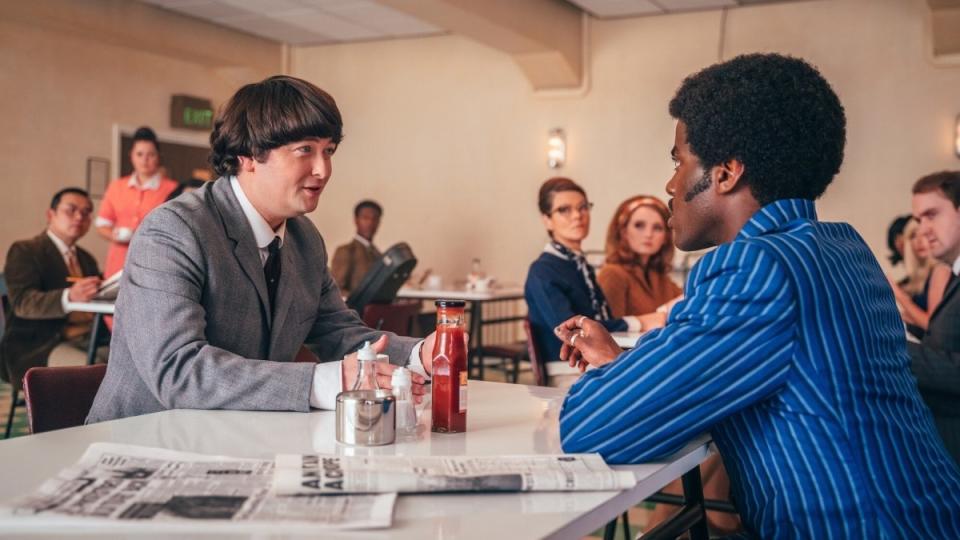Doctor Who: The Devil's Chord Review
- Oops!Something went wrong.Please try again later.
Jinkx Monsoon has put in a performance for the ages in this episode – of that there can be no debate. When you talk about villains who own the screen for every second they’re on it, this is exactly how it’s done. The Maestro is a brilliant concept for a villain, serving as the embodiment of music from the Toymaker’s domain – something already established in canon as a realm that can completely subvert every rule the series has previously set out.
Jinkx manages to make the Maestro a delight to watch, yet still threatening in their presence, overacting in just the right ways to suit a strange villain from outside the universe from a realm where nothing quite makes sense. Yet they do it in a completely different way from how Neil Patrick Harris portrayed the Toymaker last year, letting the two stand as iconic baddies in their own way.

BBC
With the Toymaker’s realm in play, I’m happy to switch the nitpicking part of my brain off and go with the flow of whatever weird and wild ideas this episode wants to introduce. It most certainly takes advantage of that, managing to play with cinematic techniques and fourth wall breaks in ways that serve the story – the Doctor’s quip that he “thought that was non-diegetic” music had me in stitches.
It makes the most of the threat these out-of-universe beings can pose too. The silent scene in the alley was tinglingly tense, and the Doctor’s complete despair when he realized what he was up against hit hard. If there was any doubt about how Ncuti could handle the heavy stuff, then this episode should put them to rest because his despondent performance as Ruby tries to rally him is beautiful.
An extra nice touch was traveling forward to 2024 to show how the timeline changes if the Maestro isn’t stopped. Over the years the Doctor has always said how “time can be rewritten” and how just because something’s in the past doesn’t mean they’re guaranteed to win, but showing it – and then using it to have a chat with the villain – made the danger all the meatier.

BBC
It all pushed into a great climax though, with a fun confrontation where the Doctor is desperately searching for that “one trick” he mentioned earlier to beat what is essentially a god. I especially loved the emphasis on musical genius being different from intelligence, and the Doctor’s egotistical assumption that he could do both.
It made John Lennon and Paul McCartney being the ones to save the day a lot more satisfying, although I would’ve liked at least one more scene with them along the way to show them coming to terms with accepting the music inside of them. It’s a heartbreaking scene when they reject it thanks to the Maestro’s influence, and a bigger push in that department would’ve made this finale go off with an even bigger bang.

BBC
I have a worrying image in my mind where a portion of the Doctor Who fanbase is going to resoundingly reject the new direction of this era that leans into more upbeat and sillier ideas However, the final musical sequence of this episode proves that the show doesn’t care about catering to old sticks in the mud anymore, and is happy to leave them behind in favor of the fans that love a bit of over-the-top cheesiness every once in a while.
Like it or not, Doctor Who has always been a show about change, and sure, this might be a bigger change than what we’ve seen in the past, but I’m having so much fun in these opening episodes that I’m not thinking about what we’ve left behind.

